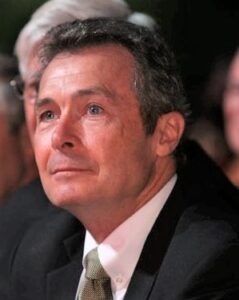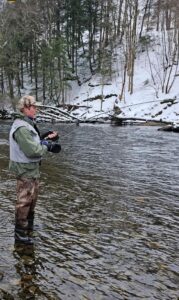

Phil Harriman
Founding Partner
Lebel & Harriman LLP, Retirement Advisors
For over forty years, Phil Harriman has worked with family-held and nonprofit businesses in the areas of business succession, key employee compensation packages, retirement, and estate planning. In 1983, he and Michael A. Lebel formed Lebel & Harriman, LLP, an independent insurance and investment advising firm. He is a former Maine State Senator, having served four terms in the Maine Senate from 1992 to 2000.
How would you describe your leadership style?
What I’ve found to be most effective is sharing our successes with everyone on the team, and for me to take ownership of the failures. In doing so, my colleagues know that I’ve got their back, that I’m not trying to pick winners and losers. As a leader, I make sure team members understand that the success of the client relationship is the most important goal, and if we need to reset or try things in a different way, I’m going to support and celebrate that.
What was the most difficult decision you’ve had to make as a leader?
There have been numerous times when I’ve had to make decisions that have cost me time or money, often both, to make sure that the outcome is what I would want if I were in the other person’s situation.
How do you motivate and inspire a team?
By setting clear expectations. I look at it as putting together a jigsaw puzzle, making sure we have all the puzzle pieces right-side up, and we know where the corner and straight-edged pieces are. The most important thing is making sure everyone understands the big picture on the box that we’re trying to build together, and that we all see the same picture.
What advice would you offer someone just starting out in your field?
As much as our profession has become high tech, it’s essential to also focus on high touch. Too many people in my profession are looking at stats, metadata, tax rates and risk/reward, but what’s most important when starting off in financial services is that the people you are asking to entrust you with their personal and financial matters believe you are hearing them and they feel understood.
Do you have any daily practices that help you be your best personal and/or professional self?
I get up early in the morning and I take anywhere from 30-45 minutes to think through the priorities of the day, and how I’m going to accomplish them, so that when I arrive at my office I’ve already got a clear agenda for the day.
Do you have a personal philosophy or mantra that has been a through line of your career?
I have two. One is that a someday dream is never going to come true unless you do something about it today. And the second is: would I do this with my money if I were in my client’s situation? If the answer is no, then I advise against it.
What so far has been the proudest moment or achievement of your career?
Starting my firm with the yellow pages, a touchtone phone and a notebook and turning it into one of the most successful financial advising firms in New England and attracting and retaining colleagues who have worked with me for more than 20 years, even one more than 30 years.
What’s one book you’ve read that changed your life?

Winter fly fishing where the Steelhead trout spawn — having the right fly and understanding their environment rewards experience and expertise.
Early in my career, I met Dr. Robert Eliot and read his book, Is it Worth Dying For? It gave me practical strategies for driving stress out of my life. At the time, I was living on commission and didn’t have many clients, and so every day I went to work looking for a job. That was a pretty stressful and challenging time, and this book helped me put things in perspective. There were three key takeaways. 1) When you can’t fight and you can’t flee, flow. 2) Where is it written that when someone throws you a guilt ball that you have to catch it? And 3) Don’t sweat the small stuff, and in the end it’s all small stuff.
What was the most valuable lesson you learned from a teacher or mentor?
I’ve been very fortunate to have many mentors throughout my career. I would say the thing I benefitted the most from them is that they each saw things in me that I had not yet discovered in myself, and they inspired me to achieve where I am today.
When you were a child, what did you want to be when you grew up?
I wanted to play for the Boston Celtics.
If you could spend one week vacationing anywhere in the world, where would you go?
Italy.
What was the first concert you attended?
The Doobie Brothers.
What was your first job, and what lessons did you learn in that role?
My first job was bagging groceries at Harriman’s Foodliner. I quickly learned that when you’re the boss’s son, you’re expected to work harder than everyone else, and do the jobs that no one else wants to do.
If you could have dinner with anyone, alive today or a historic figure, who would you choose?
Abraham Lincoln. I would love to know what it was like to lead our country, believing in ending slavery so passionately that it temporarily divided our country, and ultimately reuniting it.
What’s your favorite place on earth?
Casco Bay, Maine, or Sedona, Arizona.
Sweet or savory?
Savory. Because it could be something very different each time.
